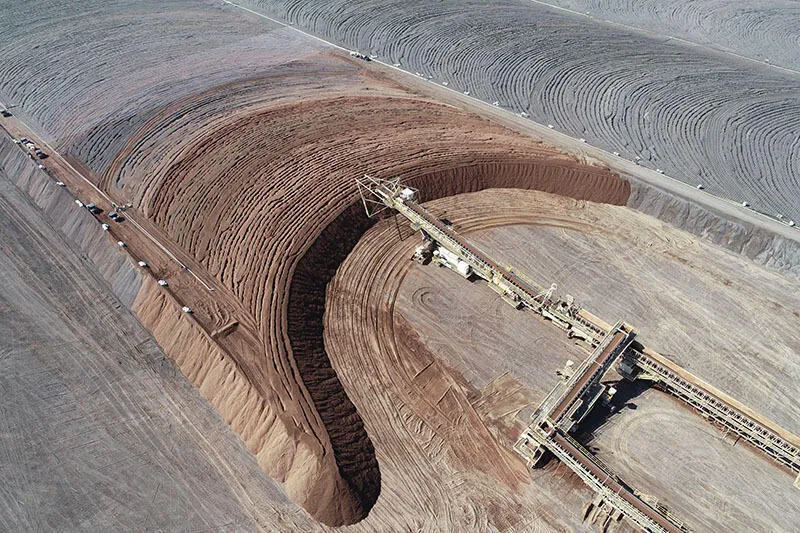(January 14, 2022) For more than two years, countless improvements – incremental and substantial – have been achieved across the company through focused efforts driven by small groups of employees. The Safford Leaching Solutions team is exploring how much they can achieve by expanding to include a whole department of employees Empowered to Act.
“We’re transforming Safford’s entire Leaching group into the company’s largest working Freeport Edge team,” said Jeremy Jordan, Senior Supervisor-Hydromet Leaching. “Our front-line employees already have been reaching across inter- and intra-divisional boundaries to freely collaborate with other teams and contractors on dozens of successful improvement projects.”
The SLS Team is all about hands-on involvement. Through a voluntary, professional development process, groups of two to four front-line employees rotate as leaders of the team, evaluating and helping to implement ideas submitted by fellow leaching personnel.
“The team leads involve our crews in planning and execution, and that has helped many projects move along quickly,” said Tige Elrage, Supervisor-Hydromet Leaching. “It’s encouraging to see all our front-line employees come forward to leverage available resources, collaborate with other groups across the site and set their own project completion schedules – all with little to no oversight or intervention from management.”
SLS team members take their cue from the Freeport Edge behaviors.
“Our employees have learned that the empowerment to act is not merely a confidence card to tuck away until an opportunity presents itself,” Jordan said. “It’s a license to continuously seek and explore opportunities with entrepreneurial zeal.”
As front-line employees have taken ownership of projects, the role of the Leaching department’s senior leaders has evolved.
“The front-line crews have the institutional knowledge needed to drive most of the project work, so the department leads spend more time coaching them and providing support,” said Rick Sanchez, formerly Superintendent-Leaching, now Superintendent-SX/EW. “The leaders help them prioritize ideas, secure resources for projects and remove any roadblocks that stall or slow progress.”
Senior leadership also contributes a fresh perspective to avoid project stagnation.
“I track the status of active items in the Product and Sprint backlogs, helping the team implement the ones that are viable and retire the ones that fail fast or otherwise prove ineffective,” Jordan said. “Once an item is considered successfully integrated, it goes through Sprint review and moves on to ‘complete’ status.”
Tapping into the brains and brawn of an entire department 80 people strong has delivered a sizeable tally of successfully completed projects. Since forming in the first half of 2020, the SLS team has chalked up more than 50 wins – big and small.
“The SLS team’s steady expansion into a department-wide Freeport Edge team has been working very well for us,” Elrage said. “It’s validating our belief in the power of numbers.”
Safford Leaching Solutions project highlights:
- The replacement of numerous short-lived PVC valve parts with longer lasting stainless steel units is expected to save tens of thousands of dollars per year.
- A remodeling of mechanical drip line reels to eliminate snag points and add hydraulic braking makes drip line installation safer and more efficient.
- Drip lines fed down wick holes on the leach pad help recover additional copper from lower lifts not sufficiently irrigated during first-cycle leaching, resulting in potential cost savings.
- The use of a fabricated, solar-powered fueling trailer in areas where fuel trucks can’t go reduces long-distance fuel runs for mobile equipment, conserving fuel and decelerating machine wear.
- New procedures for leach pad evacuation ahead of lightning storms enable personnel to maintain compliance with COVID-19 restrictions while moving to shelter.
- A system for chlorinating water lines in house reduces time and costs associated with breaks, installations and restarts of water lines.
- Drone flyover audits of the leach pad allow for quicker identification and remediation of any problems across the surface that could impact production.
